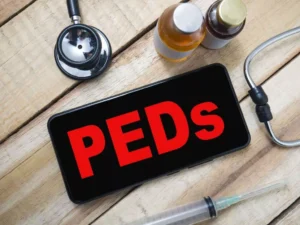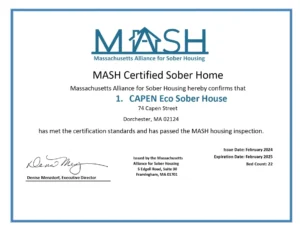15
2022Sugar Cravings after Quitting Alcohol: 10 Dietitian-Approved Tips

There is a significant connection between alcoholism and the subsequent cravings for sugar. In this section, we will explore this connection and examine the factors that contribute to sugar cravings in individuals recovering from alcoholism. Overcoming the intricate relationship between alcoholism and sugar cravings can be a challenging journey. However, there are strategies that can help break the cycle and promote healthier habits.

IOP Programs in New Hampshire for Recovery
AUD is a condition that occurs when a person has a physical need or desire to consume alcohol that is difficult to control. Just because a person experiences cravings for alcohol does not necessarily mean they have alcohol use disorder. If we are still drinking or have yet to enter into recovery, cravings for alcohol are likely a physiological and neurological response to the departure of alcohol from our bodies, known as withdrawal. We would be best served by consulting a medical or treatment professional and asking for help so we don’t have to rely on self-control alone. Well, for one, alcohol has a very high sugar content, says Dr. Weiss, so on some level, your abstinence might result in sugar withdrawal, which can in turn result in literal sugar cravings.

Factors Influencing Drug Use Tendencies in Individuals
- Discover resources and initiatives to address the stigma of alcoholism.
- Physiologically speaking, when we consume alcohol, the body converts it to sugar.
- When they’re no longer getting their “sugar fix” from alcohol, they seek it elsewhere.
Sugar can provide a short-term energy boost and temporarily improve mood by replenishing depleted glycogen stores [3]. However, excessive consumption of sugary foods and beverages can contribute to issues such as weight gain, blood sugar spikes and crashes, irritability, and fatigue in the long run. Understanding the factors that contribute to sugar cravings in individuals recovering from alcohol use disorder is essential for managing these cravings effectively. Several factors come into play, including alcohol-induced hypoglycemia, tolerance to sugar from alcohol intake, and the use of sugar as a substitute for alcohol. Seeking professional help, support from loved ones, and implementing strategies to manage sugar cravings can contribute to the recovery process. Understanding and addressing these coping mechanisms and emotional triggers is crucial in breaking the cycle of sugar cravings in alcoholics.
Top Techniques in IOP Treatment
Discover what makes Steps to Recovery the best rehab, from personalized treatments to robust support systems. Discover why an inpatient drug rehabilitation center isn’t always the answer; explore alternatives for recovery. Discover addiction help at PA rehabilitation centers, journey from darkness to recovery starts here. Explore why residential treatment centers aren’t always possible for recovery and discover alternatives.

Alcoholic subjects preferred the sweeter sucrose solutions that were given. Dark chocolate with a high percentage of cocoa is a healthier alternative to sugary desserts. It contains antioxidants and may provide some mood-boosting benefits. Opt for chocolate with at least 70% cocoa to ensure minimal added sugars. Ensuring that one is getting sufficient sleep is essential for managing stress levels and regulating appetite hormones. As a result, one decreases the likelihood of indulging one’s sweet tooth.

Sweet preference, sugar addiction and the familial history of alcohol dependence: shared neural pathways and genes
The duration of these cravings can differ from person to person, largely relying on factors like the severity of your addiction to alcohol, personal body chemistry, and diet. However, generally, these intense cravings tend to lessen over a few weeks or months as your https://ecosoberhouse.com/ body normalizes and the remnants of alcohol leave your system. The more you do “the work” the less you’ll need sugar or other external things. Moreover, starting your day with a glass or two of water can set a positive tone for your body’s hydration requirements.
Recovering alcoholics may turn to sugar as a coping mechanism to manage stress and fill the void left by alcohol. Sugar can provide a temporary sense of comfort and pleasure, which can be appealing do alcoholics crave sugar to individuals in recovery who may be dealing with uncomfortable emotions and stressors. The act of consuming sugar may serve as a way to distract from or alleviate stress temporarily.
By addressing emotional regulation and finding alternative coping mechanisms, individuals can work towards a healthier relationship with sugar and alcohol. Many individuals struggling with alcoholism use alcohol as a means of coping with their emotions. Alcohol can temporarily provide a sense of relief or escape from negative emotions such as stress, anxiety, or depression. However, when alcohol consumption is halted or reduced, individuals may seek alternative ways to fill this emotional void.
Understanding the Livers Healing Time
- The mindset some have in early recovery is “as long as I’m not drinking…”.
- Explore what the stages of addiction are, from initial use to treatment options, and navigate the path to recovery.
- There are plenty of science-backed reasons to give up drinking for a bit, which is why many people participate in Dry January.
- In addition, there appears to be cross sensitization between sugar addiction and narcotic dependence in some individuals.
When you drink alcohol, your liver becomes preoccupied with metabolizing alcohol. While it’s focused on this, it cannot release enough glucose into the bloodstream. Besides inducing similar sensations, the two substances can also lead to overloading the liver when taken in excess. There are some ways to reduce bloating, but individual results will vary.
- It is a complex disease that can have severe physical, psychological, and social effects on individuals.
- This population exhibits low selenium and potassium levels due to lower muscle mass attributed to malnutrition.
- Given that sugar intake can trigger dopamine release, it is common for recovering alcoholics to turn to sugary foods to satisfy this craving.
- Alcohol and poor eating habits can interfere with the liver’s ability to release glucose into the bloodstream, leading to low blood sugar levels, also known as hypoglycemia [1].
- Master how to stop binge drinking with effective strategies and resources.
Developing healthier coping strategies and finding alternative ways to manage emotions can help reduce the reliance on sugar as a substitute for alcohol. Understanding the physiological factors that contribute to sugar cravings in alcoholics is key to unraveling the mystery behind this phenomenon. Two significant factors that play a role in alcoholics’ sugar cravings are blood sugar levels and insulin resistance, as well as the impact of alcohol on the brain’s reward pathway.
